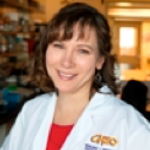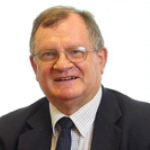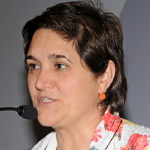The Scientific Advisory Board (SAB) will ensure a high standard of research and monitor the progress of the project by taking part in the annual meetings. Whenever appropriate, it will consult the consortium and make recommendations as to improve their performance.
The Group

Gareth Baynam
Western Australian Health Department - Genetic Services of Western Australia; Western Australian Register of Developmental Anomalies; and the Office of Population Health Genomics, Public and Aboriginal Health Division.
Gareth is a Clinical Geneticist at Genetic Services of Western Australia; an Adjunct Policy Advisor on Clinical Genomics at the WA Department of Health; Director of the Undiagnosed Diseases Program – Western Australia, and Head of the Western Australian Register of Developmental Anomalies.
He is a founding member of the International Board of Directors of the Undiagnosed Diseases Network International, and a Director of the Australian Academy of Child and Adolescent Health. He is on the Executive of the International Cerebral Palsy Genomics Consortium; and a Clinical A/Professor at the School of Paediatrics and Child Health – University of Western Australia, the Institute for Immunology and Infectious Diseases – Murdoch University, and at Spatial Sciences – Curtin University. He is an Honorary Research Fellow at Telethon Kids Institute, at which he works on multiple rare diseases projects. His PhD was in genetic modifiers of vaccine response in children and he leads a 3D facial analysis research team. He is Vice-Chair of the Diagnostics Scientific Committee of the International Rare Diseases Research Consortium. He is a member of the Orphanet Australia National Advisory Body and of the Rare Voices Australia Scientific and Medical Advisory Committee.

Kym Boycott
Children’s Hospital of Eastern Ontario, University of Ottawa, Canada
Kym Boycott is a Clinical Geneticist at the Children’s Hospital of Eastern Ontario (CHEO), Senior Scientist at the CHEO Research Institute, and Professor of Pediatrics at the University of Ottawa. Dr. Boycott’s research program in rare diseases bridges clinical medicine to basic research and is focused on understanding the molecular pathogenesis of these disorders to improve patient care and family well-being.
She is the Principal Investigator of Care4Rare Canada, a pan-Canadian platform integrating genomic and other –omic technologies to improve our understanding of rare disease, with a particular focus on solving the unsolved and most difficult rare diseases. She is co-Principal Investigator of the Rare Diseases: Models & Mechanisms Network, established to catalyze connections between clinical investigators discovering new genes and basic scientists who can analyze equivalent genes and pathways in model organisms. Dr. Boycott moves the international rare disease agenda forward through her role as the Chair of the Diagnostics Committee of the International Rare Diseases Research Consortium, a member of the Steering Committee of the Global Alliance for Genomics and Health and as a member of the Global Commission to End the Diagnostic Odyssey for Children.

Finlay Macrae
Colorectal Medicine and Genetics, The Royal Melbourne Hospital, Melbourne, Australia
Professor Finlay Macrae AO, MBBS, MD,FRACP, FRCP, AGAF is a Principal Fellow with title Professor, Department of Medicine, University of Melbourne, The Royal Melbourne Hospital Head, Colorectal Medicine and Genetics, The Royal Melbourne Hospital.
Professor Macrae has had a career in translational and clinical research focusing on diseases of the large bowel especially with regard to screening and familial risk of colorectal cancer.
As lead clinician in the Familial Cancer Clinic at The Royal Melbourne Hospital, the state's busiest in familial bowel cancer, he is engaged in a range of research projects including SNP based Genome Wide Association studies, candidate gene searches in hyperplastic polyposis and undefined polyposes, and DNA variant interpretation. His research portfolio also includes RCTs of interventional agents in familial adenomatous polyposis and non syndromic familial colorectal cancer.
He is Chair of the Hereditary Bowel Cancer Group of The Cancer Council of Victoria, currently Secretary to the International Society of Gastrointestinal Hereditary Tumours (InSiGHT), based in Leiden and London, a member of Steering Committee of the US National Institutes of Health Colon Cancer Family Register, and International vice chairman of the CAPP organization for randomized controlled trials of prevention in Lynch Syndrome gene carriers. He advises Australian federal and state governments on a range of issues and is a key member of the Australian Government sponsored revision of the Guidelines on Prevention, early detection and management of colorectal cancer.
For these services he was awarded an Order of Australia which is a high civil award granted by the Queen’s representative in Australia

Domenica Taruscio
National Centre for Rare Diseases, Istituto Superiore di Sanità, Rome, Italy
Degree in Medicine and Surgery. Post graduate Specialist in Histopathology. Post-doctoral fellow in Human Genetics (Yale University, USA) and Ethics. Director of the Italian National Centre for Rare Diseases (Istituto Superiore di Sanità). Responsible of the Italian National Registry for Rare diseases.
Coordinator of the following EU projects: NEPHIRD, EUROPLAN, EPIRARE, RARE-BestPractices. WP Leader: ADVANCE HTA, EUROCAT JA, E-RARE, RD-Connect. WP co-Leader: Endo-ERN, EuRRECa.
Member of: EU Task Force on Rare Diseases, Expert EU Commission Group on Rare Diseases, EMQN Management Board. Coordinator of the Italy-USA bilateral project “Undiagnosed Rare Diseases”.
Advisory Member of SOLVE-RD. Co-Founder of Undiagnosed Diseases Network International UDNI. Past President and Board Member of ICORD. Vice Chair of ISC IRDiRC. Coauthor of more the 150 peer reviewed publications.
